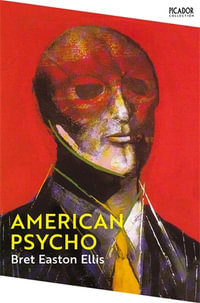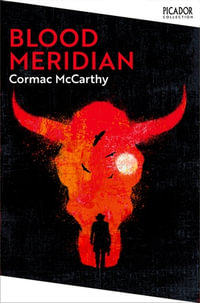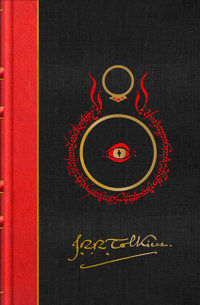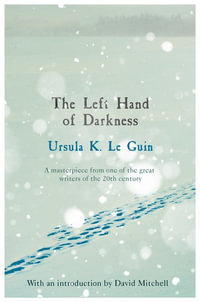
At a Glance
144 Pages
1 x 13 x 19.8
Paperback
RRP $22.99
$22.90
or 4 interest-free payments of $5.72 with
Aims to ship in 5 to 10 business days
About the Author
Muriel Spark (1918 - 2006) wrote poetry, stories, and biographies as well as a remarkable series of novels, including The Prime of Miss Jean Brodie , The Mandelbaum Gate, which received the James Tait Black Prize, and The Public Image and Loitering with Intent, both of which were shortlisted for the Booker Prize. Spark was awarded the T.S. Eliot Award for poetry in 1992, and the David Cohen Prize for literature in 1997.
Industry Reviews
"A sublimely funny book... it is a book to be read by all... unforgettable and universal." - Candia McWilliam, author of Debatable Land
"The complexity of these two characters, especially Jean Brodie, mirrors the complexity of human life. Jean Brodie is genuinely intent on opening up her girls' lives, on heightening their awareness of themselves and their world, and on breaking free of restrictive, conventional ways of thinking, feeling, and being." - Hal Hager
"[A] sublime miracle of wit and brevity, and a Scots classic that’s a masterclass in narrative construction and the art of “less is more”." - The Guardian
The boys, as they talked to the girls from Marcia Blaine School, stood on the far side of their bicycles holding the handlebars, which established a protective fence of bicycle between the sexes, and the impression that at any moment the boys were likely to be away.
The girls could not take off their panama hats because this was not far from the school gates and hatlessness was an offence. Certain departures from the proper set of the hat on the head were overlooked in the case of fourth-form girls and upwards so long as nobody wore their hat at an angle. But there were other subtle variants from the ordinary rule of wearing the brim turned up at the back and down at the front. The five girls, standing very close to each other because of the boys, wore their hats each with a definite difference.
These girls formed the Brodie set. That was what they had been called even before the headmistress had given them the name, in scorn, when they had moved from the junior to the Senior school at the age of twelve. At that time they had been immediately recognisable as Miss Brodie's pupils, being vastly informed on a lot of subjects irrelevant to the authorised curriculum, as the headmistress said, and useless to the school as a school. These girls were discovered to have heard of the Buchmanites and Mussolini, the Italian Renaissance painters, the advantages to the skin of cleansing cream and witch-hazel over honest soap and water, and the word "menarche"; the interior decoration of the London house of the author of Winnie the Pooh had been described to them, as had the love lives of Charlotte Bronte and of Miss Brodie herself. They were aware of the existence of Einstein and the arguments of those who considered the Bible to be untrue. They knew the rudiments of astrology but not the date of the Battle of Flodden or the capital of Finland. All of the Brodie set, save one, counted on its fingers, as had Miss Brodie, with accurate results more or less.
By the time they were sixteen, and had reached the fourth form, and loitered beyond the gates after school, and had adapted themselves to the orthodox regime, they remained unmistakably Brodie, and were all famous in the school, which is to say they were held in suspicion and not much liking. They had no team spirit and very little in common with each other outside their continuing friendship with Jean Brodie. She still taught in the junior department. She was held in great suspicion.
Marcia Blaine School for Girls was a day school which had been partially endowed in the middle of the nineteenth century by the wealthy widow of an Edinburgh book-binder. She had been an admirer of Garibaldi before she died. Her manly portrait hung in the great hall, and was honoured every Founder's Day by a bunch of hard-wearing flowers such as chrysanthemums or dahlias. These were placed in a vase beneath the portrait, upon a lectern which also held an open Bible with the text underlined in red ink, "0 where shall I find a virtuous woman, for her price is above rubies."
The girls who loitered beneath the tree, shoulder to shoulder, very close to each other because of the boys, were all famous for something. Now, at sixteen, Monica Douglas was a prefect, famous mostly for mathematics which she could do in her brain, and for her anger which, when it was lively enough, drove her to slap out to right and left. She had a very red nose, winter and summer, long dark plaits, and fat, peglike legs. Since she had turned sixteen, Monica wore her panama hat rather higher on her head than normal, perched as if it were too small and as if she knew she looked grotesque in any case.
Rose Stanley was famous for sex. Her hat was placed quite unobtrusively on her blonde short hair, but she dented in the crown on either side.
Eunice Gardiner, small, neat and famous for her spritely gymnastics and glamorous swimming, had the brim of her hat turned up at the front and down at the back.
Sandy Stranger wore it turned up all round and as far back on her head as it could possibly go; to assist this, she had attached to her hat a strip of elastic which went under the chin. Sometimes Sandy chewed this elastic and when it was chewed down she sewed on a new piece. She was merely notorious for her small, almost nonexistent, eyes, but she was famous for her vowel sounds which, long ago in the long past, in the junior school, had enraptured Miss Brodie. "Well, come and recite for us please, because it has been a tiring day."
She left the web, she left the loom,
She made three paces thro' the room,
She saw the water-lily bloom,
She saw the helmet and the plume,
She look'd down to Camelot.
"It lifts one up," Miss Brodie usually said, passing her hand outward from her breast towards the class of ten-year-old girls who were listening for the bell which would release them. "Where there is no vision," Miss Brodie had assured them, "the people perish. Eunice, come and do a somersault in order that we may have comic relief."
But now, the boys with their bicycles were cheerfully insulting Jenny Gray about her way of speech which she had got from her elocution classes. She was going to be an actress. She was Sandy's best friend. She wore her hat with the front brim bent sharply downward; she was the prettiest and most graceful girl of the set, and this was her fame. "Don't be a lout, Andrew," she said with her uppish tone. There were three Andrews among the five boys, and these three Andrews now started mimicking Jenny: "Don't be a lout, Andrew," while the girls laughed beneath their bobbing panamas.
ISBN: 9780141181424
ISBN-10: 0141181427
Series: Penguin Modern Classics
Published: 1st July 2000
Format: Paperback
Language: English
Number of Pages: 144
Audience: General Adult
Publisher: Penguin UK
Country of Publication: GB
Edition Number: 1
Dimensions (cm): 1 x 13 x 19.8
Weight (kg): 0.11
Shipping
| Standard Shipping | Express Shipping | |
|---|---|---|
| Metro postcodes: | $9.99 | $14.95 |
| Regional postcodes: | $9.99 | $14.95 |
| Rural postcodes: | $9.99 | $14.95 |
How to return your order
At Booktopia, we offer hassle-free returns in accordance with our returns policy. If you wish to return an item, please get in touch with Booktopia Customer Care.
Additional postage charges may be applicable.
Defective items
If there is a problem with any of the items received for your order then the Booktopia Customer Care team is ready to assist you.
For more info please visit our Help Centre.
You Can Find This Book In
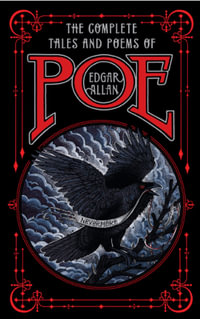
The Complete Tales and Poems of Edgar Allan Poe - Omnibus Edition
Barnes & Noble Leatherbound Classic Collection
Leather Bound Book
RRP $59.99
$43.25
OFF

BLACK FRIDAY
Paperback
RRP $17.99
$10.80
OFF






